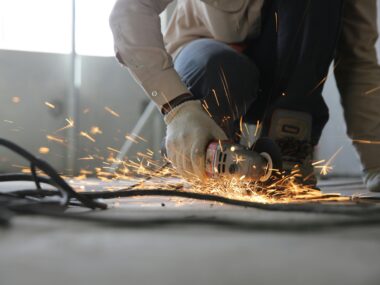Germany is renowned for its robust economy, state-of-the-art infrastructure, and a thriving construction industry. As one of the fastest-growing sectors, the construction industry in Germany is a major contributor to its GDP. With a growing demand for skilled and unskilled workers, Germany has opened doors for international applicants, offering visa sponsorship for qualified candidates. This guide will provide detailed insights into construction job opportunities, the visa process, and tips to secure a job in Germany’s booming construction industry.
Why Choose Construction Jobs in Germany?
1. High Demand for Workers
Germany is experiencing a labor shortage in its construction industry, driven by urbanization, infrastructure upgrades, and green building initiatives. This has created a surge in demand for foreign workers.
2. Attractive Salaries and Benefits
Construction jobs in Germany offer competitive pay, typically ranging from €2,000 to €5,000 per month, depending on experience and qualifications. Additional benefits may include health insurance, pension plans, and paid vacations.
3. Visa Sponsorship Opportunities
Many employers in Germany are willing to sponsor visas for foreign workers, simplifying the relocation process for qualified candidates.
4. Career Growth and Training
Germany emphasizes skill development and offers on-the-job training programs, making it an excellent destination for career growth.
Types of Construction Jobs in Germany
1. Skilled Roles
- Bricklayers and Masons: Constructing and repairing walls, floors, and other structures.
- Carpenters: Specializing in woodwork for frameworks and interiors.
- Electricians: Installing and maintaining electrical systems on construction sites.
- Plumbers: Responsible for water and heating systems.
- Roofers: Installing and repairing roofs for residential and commercial buildings.
2. Unskilled Roles
- General laborers assisting skilled workers.
- Site cleanup and preparation.
- Material transportation and handling.
3. Technical and Supervisory Roles
- Civil Engineers: Designing and managing construction projects.
- Project Managers: Overseeing budgets, timelines, and team performance.
- Architectural Draftsmen: Preparing technical drawings and blueprints.
Benefits of Construction Jobs in Germany
1. Visa Sponsorship and Relocation Assistance
Employers often provide visa sponsorship, covering documentation and relocation expenses.
2. Comprehensive Worker Protections
Germany enforces strict labor laws, ensuring fair wages, reasonable working hours, and safe workplace conditions.
3. Free or Subsidized Training
Many employers offer training programs to enhance the skills of foreign workers, helping them adapt to German construction standards.
4. Permanent Residency Opportunities
Workers with consistent employment and compliance with visa terms may qualify for permanent residency.
Eligibility Requirements
1. Educational Qualifications
- A high school diploma is sufficient for most unskilled roles.
- Skilled roles may require vocational training or certifications.
2. Work Experience
- Relevant experience is a plus for both skilled and unskilled positions.
3. Language Skills
- Basic German language proficiency is preferred, though some employers offer language training programs.
4. Physical Fitness
- Construction jobs require physical strength and stamina.
5. Valid Passport and Visa Eligibility
- Ensure your passport is up-to-date and meet the visa requirements for working in Germany.
How to Find Construction Jobs in Germany
1. Online Job Portals
- Make It in Germany: A government portal offering job listings and guidance for foreign workers.
- Indeed Germany: Features job postings with filters for visa sponsorship.
- EURES (European Job Mobility Portal): Connects job seekers with employers across Europe.
2. Recruitment Agencies
- Agencies specializing in international placements can help match you with German employers willing to sponsor visas.
3. Company Websites
- Major construction firms in Germany, such as Hochtief and Strabag, often list job openings on their websites.
4. Networking and Referrals
- Join professional networks or attend industry events to connect with potential employers.
Visa Sponsorship Process for Construction Jobs
1. Secure a Job Offer
- Find an employer in Germany willing to sponsor your visa.
2. Employer Submits Visa Application
- The employer will apply for your work visa and provide you with a contract and other required documentation.
3. Apply for a Work Visa
- Submit the visa application to the German embassy or consulate in your country. Required documents include:
- A valid passport.
- Job offer letter.
- Proof of qualifications or experience.
- Health insurance coverage.
4. Relocation and Onboarding
- Once the visa is approved, plan your move to Germany and complete onboarding with your employer.
Popular Regions for Construction Jobs
1. Berlin
- Ongoing urban development projects and residential housing construction.
2. Munich
- Known for large-scale commercial and industrial construction.
3. Hamburg
- Focuses on harbor infrastructure and green building initiatives.
4. Frankfurt
- A hub for skyscraper construction and real estate development.
Challenges to Consider
1. Language Barriers
- Learning basic German can ease communication on job sites and in daily life.
2. Cultural Differences
- Adapting to Germany’s work culture, which values punctuality, precision, and efficiency.
3. Weather Conditions
- Construction work in Germany may be affected by seasonal weather changes, especially in winter.
Tips for Success
- Learn Basic German
- Enroll in language classes to improve communication and job prospects.
- Research Employers
- Target reputable companies known for hiring foreign workers.
- Highlight Transferable Skills
- Emphasize skills like teamwork, problem-solving, and attention to detail in your application.
- Stay Committed
- Demonstrating reliability and adaptability can lead to long-term opportunities.
Conclusion
Construction jobs in Germany with visa sponsorship provide an excellent opportunity for individuals seeking stable employment and international experience. With competitive salaries, robust worker protections, and career advancement potential, these roles are highly attractive to skilled and unskilled workers alike.
Start by researching job openings, preparing your application, and connecting with employers willing to sponsor visas. With the right preparation and determination, you can build a successful career in Germany’s thriving construction industry.






